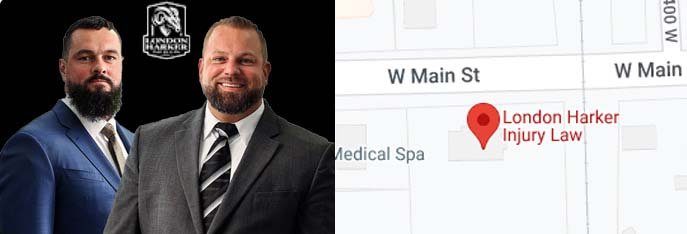Posted on Friday, October 3rd, 2025 at 11:51 am
Navigating the Clock: The Statute of Limitations for Brain Injury Claims in Utah
Suffering a traumatic brain injury (TBI) is one of the most devastating challenges a person can face. Unlike broken bones or soft tissue injuries, brain damage can lead to lifelong physical, cognitive, and emotional impairments. Victims often struggle with memory, motor skills, speech, and even personality changes that permanently alter their lives and the lives of their families.
When such an injury is caused by another’s negligence—whether from a car accident, a slip-and-fall, or medical malpractice—seeking legal compensation is not only about financial recovery, but also about securing resources for long-term care and rehabilitation.
But there is a critical legal clock you must understand: the statute of limitations. These legal deadlines determine how long you have to file a claim in Utah courts. Miss the deadline, and your case may be dismissed forever, regardless of how strong your evidence is.
In this guide, we’ll break down the statutes of limitations for brain injury claims in Utah, explain exceptions, and highlight why it’s essential to act quickly.
Understanding Utah’s Statute of Limitations for Brain Injury Lawsuits
The statute of limitations is the legal deadline for filing a lawsuit. In Utah, this deadline varies depending on:
- The cause of the brain injury (car crash, malpractice, slip-and-fall, assault, etc.).
- Who is responsible (a private party, a government entity, or a healthcare provider).
- Special circumstances (wrongful death, minors, fraudulent concealment, or delayed discovery).
Once the statute of limitations expires, courts will typically refuse to hear the case, no matter how severe the injury.
Deadlines for Filing a Brain Injury Lawsuit in Utah
Here are the main statutes of limitations that apply to brain injury cases in Utah:
1. Standard Personal Injury Claims (Negligence)
Most brain injuries result from negligence, such as car crashes, slip-and-fall accidents, or truck collisions.
- Deadline: You generally have four years from the date of the injury to file a lawsuit.
- Governing Law: Utah Code Ann. § 78B-2-307
This four-year rule is the default statute of limitations for most personal injury lawsuits in Utah.
For example, if you suffered a TBI in a car accident, you can learn more in our resource: How Utah’s No-Fault Insurance Works After a Car Accident.
2. Medical Malpractice Brain Injury Claims
If a doctor, nurse, or hospital caused the brain injury (e.g., surgical error, birth injury, or failure to diagnose a condition), the statute of limitations is stricter.
- Discovery Deadline: You must file within two years of discovering (or when you should have discovered) the injury.
- Absolute Limit: Regardless of discovery, you cannot file more than four years after the malpractice occurred.
- Notice Requirement: Before filing, you must serve a 90-day notice of intent to sue on the healthcare provider.
- Governing Law: Utah Code Ann. § 78B-3-404(1)
If the provider fraudulently concealed the malpractice, the time limit may be extended.
3. Wrongful Death Claims from Brain Injuries
If the brain injury is fatal, surviving family members may file a wrongful death claim.
- Deadline: Must be filed within two years of the date of death.
- Governing Law: Utah Code Ann. § 78B-2-304(2)
Other relevant statutes:
- Wrongful death defined: Utah Code Ann. § 78B-3-106
- Who may file: Utah Code Ann. § 78B-3-105
Learn more in our in-depth resource: Understanding Wrongful Death Claims in Utah.
4. Claims Against Government Entities
If a brain injury was caused by a government entity or employee (such as a public school or city vehicle), deadlines are much shorter.
- Notice Requirement: You must file a formal notice of claim within one year of the injury.
- Governing Law: Utah Code Ann. § 63G-7-402
If the government denies the claim, you then have a limited time to file a lawsuit.
Critical Exceptions to the Statute of Limitations
While the rules above are strict, there are exceptions that can extend (or shorten) your deadline.
The Discovery Rule
Some cases follow the discovery rule, meaning the clock starts when you discover (or should have discovered) the injury. This often applies in medical malpractice cases, where symptoms may not appear until months or years later.
Exception for Minors (Tolling)
If the victim is under 18, the statute of limitations may be tolled (paused) until their 18th birthday. At that point, the normal deadline begins to run.
For instance, if a 15-year-old suffers a TBI in a car accident, they may have until age 22 to file a lawsuit (18 years + 4-year limit).
Fraudulent Concealment
If the at-fault party actively hid their wrongdoing—such as a hospital covering up a medical error—the statute of limitations may be extended until discovery.
Why Timing Is Everything in Brain Injury Cases
Missing a statute of limitations deadline can completely eliminate your right to recovery. Courts in Utah enforce these rules strictly, even in cases of catastrophic injury.
Beyond the legal deadline, early action helps your case by:
- Preserving physical evidence (e.g., damaged vehicles, medical records).
- Securing eyewitness testimony while memories are fresh.
- Ensuring insurance companies cannot delay until the deadline expires.
For related insights, see our article: What Not to Say to Insurance After a Utah Car Crash.
Steps to Protect Your Brain Injury Claim
- Seek Medical Treatment Immediately
Prompt diagnosis is crucial both for your health and your legal case. Delays in treatment can give insurers grounds to argue your injury was not serious or was caused elsewhere. - Consult an Experienced Brain Injury Lawyer
A skilled attorney will calculate your exact deadline and ensure all procedural requirements (such as notices of claim) are met. - Document Everything
Keep records of medical treatment, therapy, time off work, and how the injury impacts your daily life. - Act Quickly
Even if you think you have years left, it’s always safer to start the process immediately.
Conclusion: Don’t Let the Clock Run Out
A traumatic brain injury can upend your life in an instant. Between medical bills, rehabilitation, and the emotional toll, the last thing you need is to lose your chance at justice because of a missed deadline.
The statute of limitations in Utah varies depending on the cause, four years for most personal injury cases, two years for wrongful death or malpractice, and as little as one year for claims against government entities. Special rules also apply for minors, fraudulent concealment, and discovery-based injuries.
If you or a loved one has suffered a brain injury, don’t wait. The clock is already ticking.
Contact London Harker Injury Law today for a free consultation. We have extensive experience handling brain injury and wrongful death claims across Utah, and we’ll ensure your case is filed on time and handled with the care it deserves.



